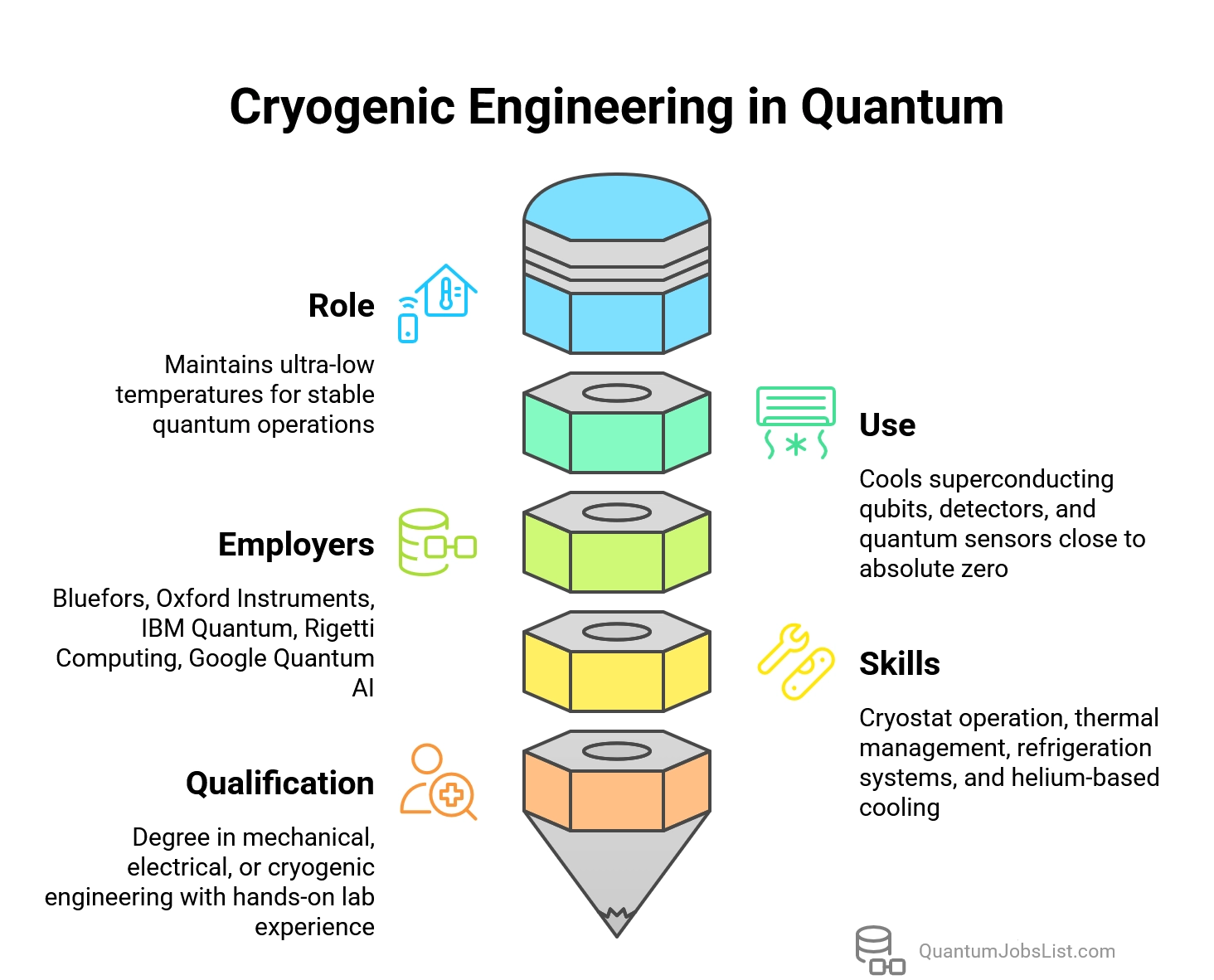Cryogenic Engineering Jobs













































Search jobs
Know the Basics
Engineering ultra-cold systems that keep quantum computers operating at temperatures near absolute zero, designing cooling infrastructure, thermal management, and cold electronics.
What does a cryogenic engineer do in quantum computing?
They handle the design, development, and maintenance of the cryogenic systems that keep quantum computers functioning at ultra-low temperatures. You will design systems for cooling, control thermal budgets, resolve issues regarding temperature stability, and integrate cryogenic systems that house quantum processors.
Working in cryogenic engineering means designing systems that reliably operate at temperatures colder than outer space, every component must perform or the whole project fails. Dr. Emily Chen, Senior Cryogenic Systems Engineer at Commonwealth Fusion Systems
What salary can cryogenic engineers in quantum expect?
Entry-level positions typically start at $90,000-$110,000 a year. Experienced engineers earn $120,000-$160,000 a year, while senior cryogenic engineers at major quantum companies can make $170,000-$210,000+, especially those with expertise in quantum-specific thermal management. You can learn more about Cryogenic engineer salary here.
What education do I need for cryogenic engineering roles?
To qualify for most jobs, you need at least a Bachelor’s degree in Mechanical, Electrical, or Industrial Engineering or similar work experience. For higher positions, a Master’s degree is beneficial. You should understand the fundamentals of thermodynamics and the transfer of heat, vacuum systems, and the physics of low temperatures.

Why is cryogenic engineering critical for quantum computers?
Superconducting qubits need extremely cold temperatures to function properly. Cryogenic engineers guarantee qubits stay cold to keep quantum states and fight thermal noise that can destroy fragile quantum information.
What career paths exist in cryogenic engineering?
You could work as a Cryogenic System Designer/Engineer creating cooling systems. You can also work as an Aerospace Engineer focusing on cryogenic propulsion systems for rockets and spacecraft. Medical imaging (MRI systems), industrial gas companies, and research labs also need cryogenic expertise.
As a cryogenic engineer you’re not just solving mechanical problems, you’re enabling breakthroughs in energy, aerospace and quantum tech by mastering the cold. Carlos González, Principal Cryogenics Engineer at Technifab Products, Inc.
Can mechanical engineers transition to quantum cryogenic roles?
Absolutely! Your experience in thermodynamics, heat transfer, and mechanical design will work just fine. You’ll need to learn the fundamentals of low-temperature physics and helium refrigeration systems and understand the requirements of quantum computing. A lot of quantum engineering companies focus on recruiting mechanical engineers and provide preparation specifically for quantum engineering.

.svg)

